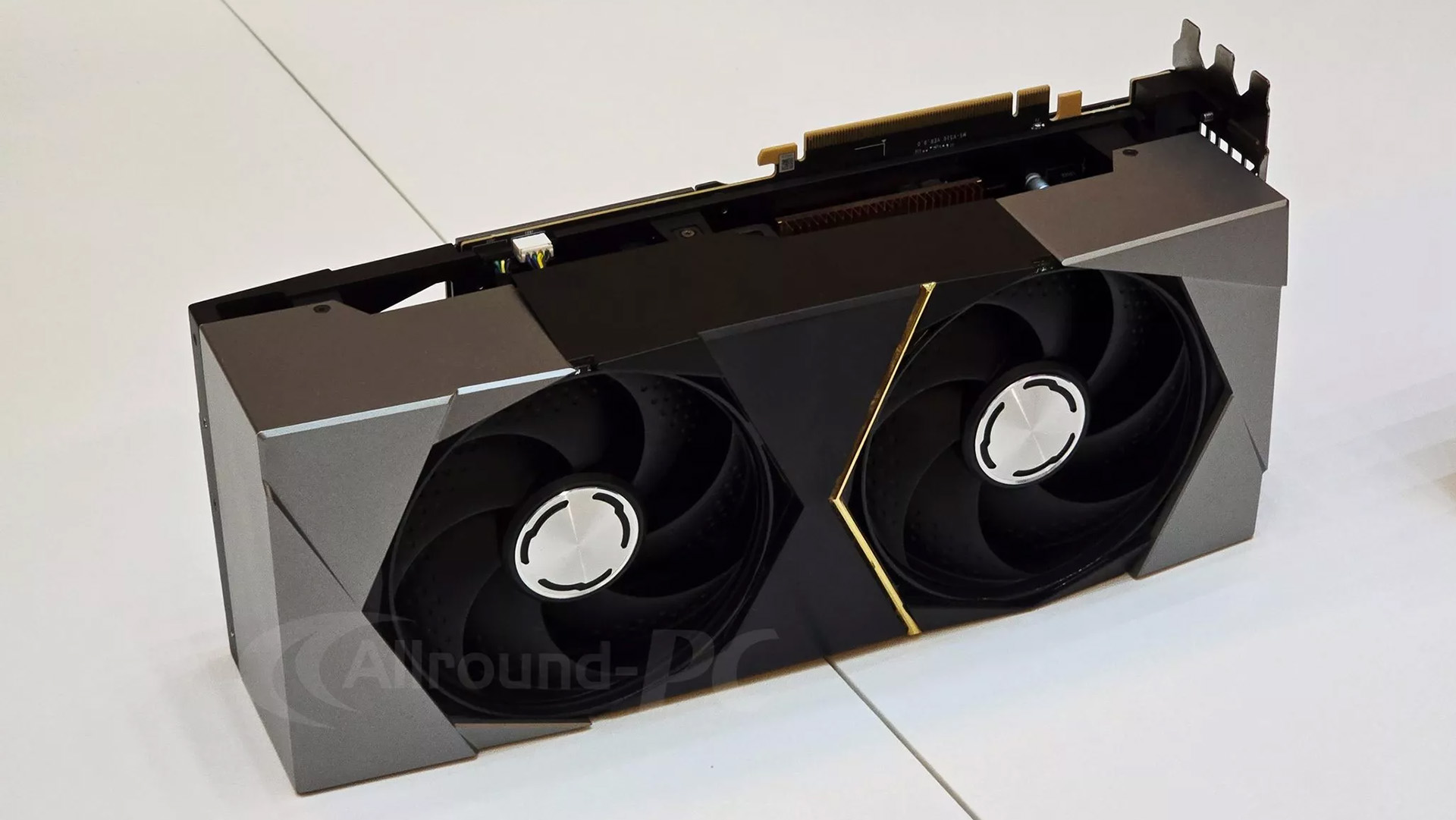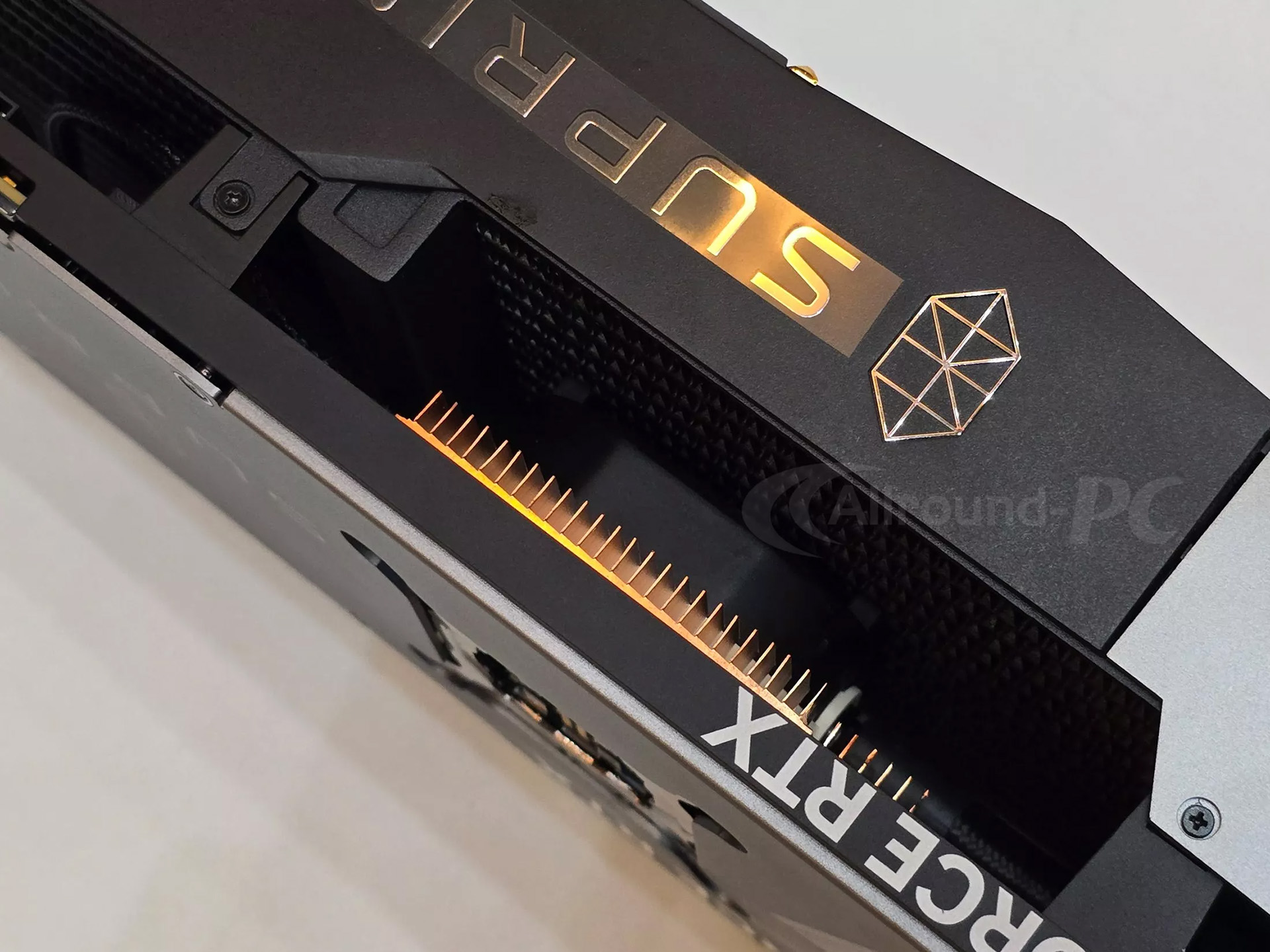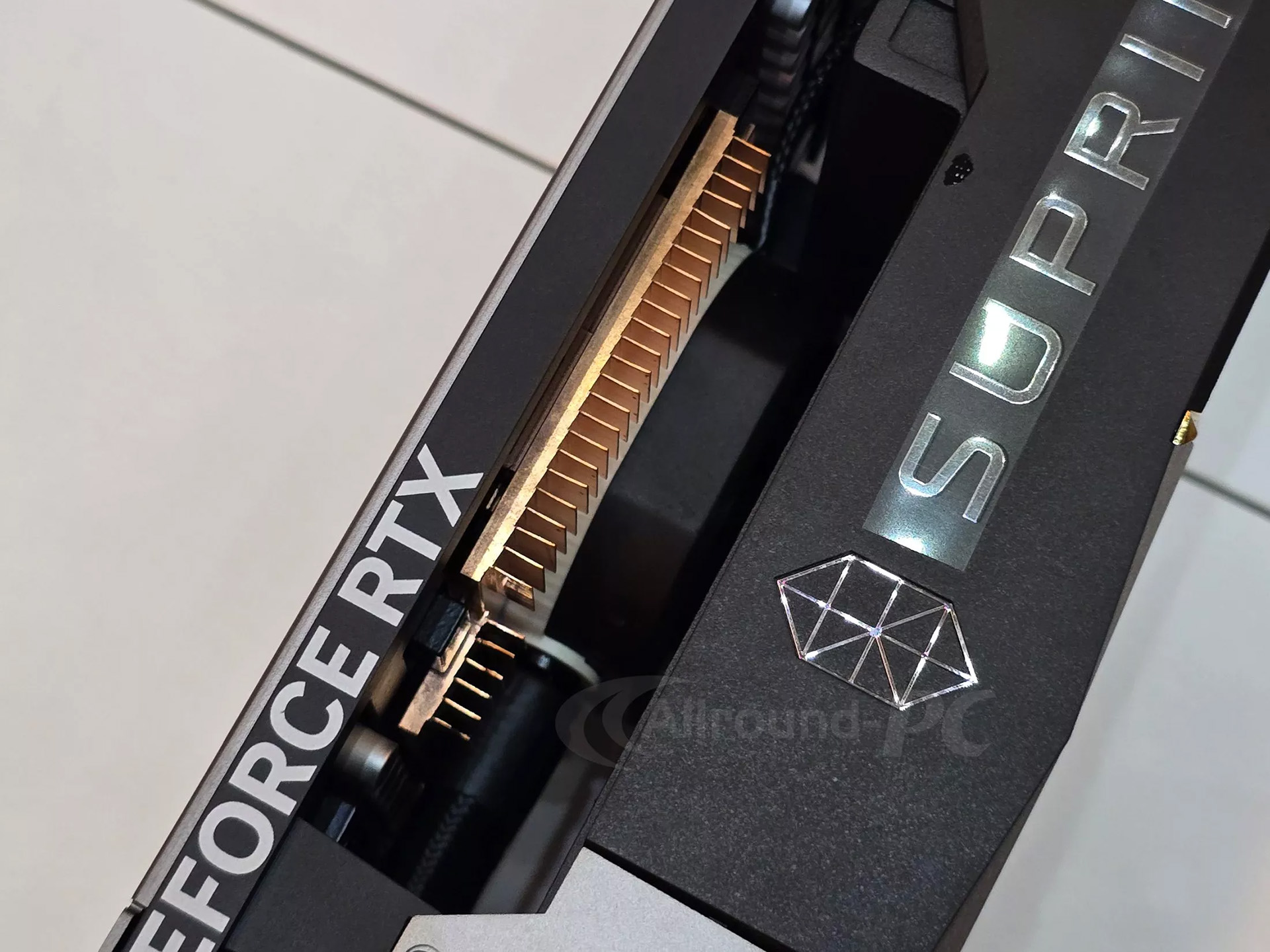Liquid-cooled RTX 4090 Suprim Fuzion Frankencard crams tubes and radiator into its monstrous 4.5-slot form factor
A new take on "all in one" liquid-cooling.

MSI is known for its high-performance air-cooled graphics cards and its cool-running liquid-cooled graphics cards sporting All-In-One solutions. Now it's looking to combine the two with its all-new RTX 4090 Suprim Fuzion, which features a liquid-cooled cooling solution without an external radiator (as reported by Allround-PC). The Frankencard eliminates the tubing and external radiator from the typical liquid-cooled GPU approach, making for a massive 4.5-slot solution.
The RTX 4090 Suprim Fuzion comes with an integrated radiator that's housed underneath the card's massive shroud. The radiator replaces the heatsink that would be installed in a traditional air-cooled graphics card, with the pump, plumbing, and heat-plate underneath providing a liquid-cooled solution. Two massive fans on the top of the shroud push air through the heatsink and out the sides of the card, just like a normal graphics card. The exhaust air coming out of the radiator will also help cool PCB components underneath.


Inside the card, a circular heatspreader can be seen attached to tubing that's obviously connected to the radiator. On the outskirts of the GPU die, several copper heatsinks can be seen placed on important parts of the PCB that need direct cooling, like the GDDR6X chips. MSI probably chose copper over cheaper metals to improve heat dissipation, though it's still a different approach. Usually, all of a board's cooling (including the VRMs) gets handled by a single giant heatsink, but with the radiator in place, MSI apparently decided it was better to break the cooling up into individual heatsinks. How well that all works remains to be seen.
Despite the size and airflow constraints of packing a radiator inside a graphics card, MSI's new Fuzion liquid-cooled GPU purportedly boasts 15% better "performance" compared to traditional air-cooling technology. The card also reportedly comes with "90% shorter pipes compared to traditional liquid cooling designs," which is presumably where it gets the vast majority of its performance improvement.
This card won't be for everyone, as it's nearly five slots thick and undoubtedly weighs a metric ton thanks to the liquid and built-in radiator. However, if you like big graphics cards and have the room in your case, it's advantageous from a packaging standpoint. The card retains all the advantages of an air-cooled card in the fact that it doesn't require extra case compatibility for an external radiator and fans, and it offers a much cleaner design with no tubes sticking out of the side like you'd see with regular AIO cooled graphics cards.
Beyond the cooler itself, MSI has also made some changes to the shroud design to separate itself from the pack. Most notably, the RTX 4090 Suprim Fuzion is the first dual-fan Suprim model ever made — all other models come with three fans (unless you only want to count the dual-fan radiator on the 4090 Suprim X Liquid, maybe, but then there's a third fan on the card itself). There's also a massive Suprim logo on the side thanks to the card's chunky girth.
What's not clear is how this new Suprim Fuzion will compare with other 4090 cards when it comes to raw performance. Liquid-cooled cards often run cooler, but that doesn't normally translate into major performance improvements. In fact, the aforementioned 4090 Suprim X Liquid ended up being slightly slower than the Asus 4090 ROG Strix that we tested, thanks primarily to the higher clocks on the Asus card.
Pricing hasn't been announced, but we fully expect this card to be MSI's most expensive RTX 4090. With the already sky-high prices of the outgoing RTX 4090 — 19 months after launch, it's still mostly selling above the base $1,599 MSRP — we wouldn't be surprised if this card retails for $2,500 or higher, depending on its rarity. Collectors might be enticed by the design, but we'd suggest waiting to see what the Nvidia Blackwell RTX 50-series GPUs bring to the table later this year.
Get Tom's Hardware's best news and in-depth reviews, straight to your inbox.

Aaron Klotz is a contributing writer for Tom’s Hardware, covering news related to computer hardware such as CPUs, and graphics cards.
-
The Historical Fidelity I don’t quite understand why this is a product. I always appreciated a liquid cooled cards ability to dump all the heat outside the case instead of cooking everything inside with its exhaust.Reply -
PEnns "... into its monstrous 4.5-slot form factor"You mean 5 slots. There is no such thing as 1/2 a slot.Reply -
jlake3 ...I'm not sure I understand the benefit of this card?Reply
A traditional AIO loop lets you move the weight and bulk of the fins off of the CPU/GPU itself, so that you can achieve more surface area and a more dispersed layout than would otherwise be possible, with the added bonus of thermal mass to soak up small spikes in temp without the fans needing to spin up. But if you insist on putting the whole loop on a GPU, now you've got the exact same amount of space and weight available to design within as a air-cooled card but also have to house a pump, and the smaller loop means less thermal mass to soak up spikes versus a larger system.
Pumped liquid might be able to distribute the heat more evenly and get it out to the edges of the fins so you can use your surface area more effectively... but it seems like a weird intermediate step to add all that cost and mechanical complexity then limit yourself to a radiator that can fit on a PCIe card. -
pixelpusher220 the real downside is having to learn arc welding to build the GPU support structure requiredReply -
King_V That's quite the chonky card. Immediately brought me to mind of this charming little ditty:Reply
wndmF7N3IY0 -
domih Reply
Yep. This also means that if you want to use 4 of them in a workstation rig, you need a 20-slot wide case :ROFLMAO:PEnns said:
"... into its monstrous 4.5-slot form factor"You mean 5 slots. There is no such thing as 1/2 a slot. -
Amdlova Will be nice put a itx mothetboard on it? What is this tiny detail? On your graphics cars?Reply -
Notton My Silverstone SG13 only has 2 slots, but the case has room for up to 2.5 slot cards.Reply
I'm sure there are other cases that have a similar dead space at the furthest slot. -
CmdrShepard This is such a stupid design on so many levels that I sincerely wonder how it even came to producing an engineering sample let alone spinning a production run.Reply -
TechLurker I'm surprised another company revisited the idea. ASUS did a similar setup with the MATRIX 2090, and it performed slightly better than other similar 3-fan cooler equivalents, mainly due to the increased time it took to thermally saturate liquid. Of course, ASUS then gave up on the concept and just went with a fancy AIO design with the 4090 MATRIX.Reply
I'm curious as to how well this one would perform relative to the competition given its girth.